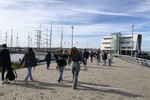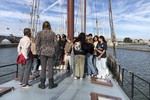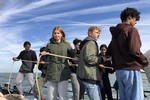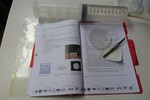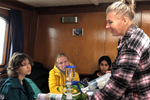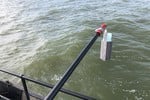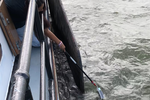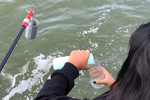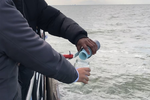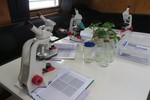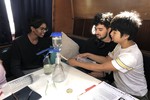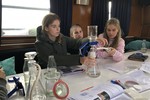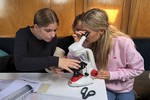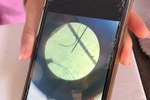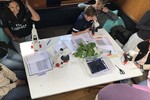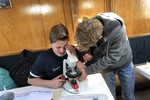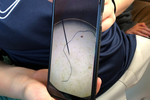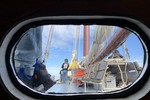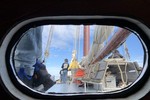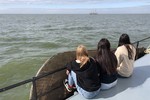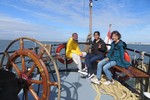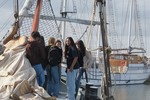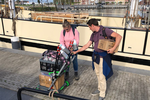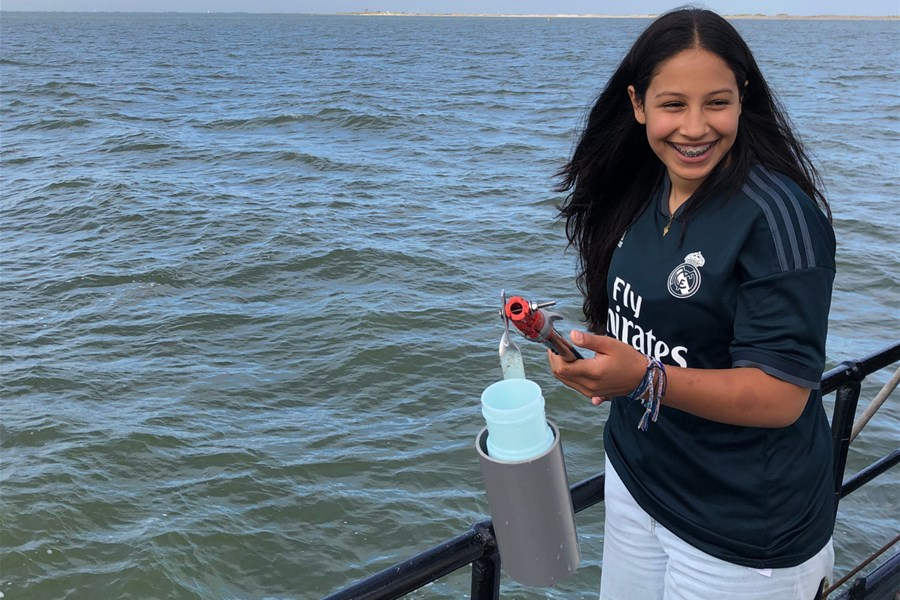
Midweek Plastic Soep Expeditie
Plastic is now everywhere: in the oceans, rivers, lakes, animals and even in our bodies. These plastics do not decompose and disintegrate into microplastics that you can hardly see with the naked eye. And they are unfortunately also in the IJsselmeer, Markermeer and Wadden Sea. How much there is by now, why this is not good for people, animals and the environment and what steps pupils themselves can take to prevent even more plastic pollution, youngsters discover during the Plastic Soup Expedition on a traditional sailing ship in the Netherlands.
While pupils experience a few fantastic days on an authentic sailing ship, this voyage of discovery not only makes them think about the plastic problem, but also makes them experience the urgency and challenges them with a challenge to prevent worse and make more sustainable choices in the future. Meanwhile, they get to know each other better, work together, explore and there is plenty of room to relax, play games and catch up. An educational school outing with impact and fun!
The Plastic Soup Expedition in brief
During this interactive expedition, young people learn a lot about themselves and the group. In addition, they learn a lot about plastic, the problem and the solutions. This package offers:
- The introductory lesson 'Plastic Soup', a lesson on the plastic issue, which you can give in class or on the ship as preparation.
- The 'Plastic Diet' challenge, in which pupils investigate how much plastic they consume during the sailing trip or at home and are challenged to look for alternatives.
- A varied sailing trip on the IJsselmeer, Markermeer or Wadden Sea with an in-depth lesson on microplastics in the water, giving pupils the unique opportunity to fish for microplastics themselves and experience the plastic problem.
The plastic problem
Seventy per cent of plastic ever produced worldwide is used only once. After that, these Single Use Plastics (SUP), as it is also called, end up in landfills and a truckload of plastic disappears into our oceans every minute. The nasty thing about plastic is that it does not decompose. It breaks down into tiny particles and these microplastics are now everywhere. Recycling alone will not solve the problem. It has to be tackled at the source and that means being more plastic-conscious and reducing it wherever possible.
Learning - challenging - experiencing. You get with this package:
- The introductory lesson 'Plastic Soup' (free): this is an interactive IWB lesson for the classroom, with videos, questions and assignments about plastic pollution, the extent, sources and consequences of the plastic soup. It also addresses the challenges of recycling and what students themselves can do to reduce plastic use. You will receive a teacher's guide and a poster with tips to reduce plastic consumption. Lesson duration is max 30 - 50 minutes. You will need yourself a good internet connection and a screen.
- The challenge 'Plastic diet' (free): with this challenge, you challenge pupils to look deeper into the matter, examine their behaviour and contribution to the plastic problem and look for solutions to reduce disposable plastic waste themselves. You can let them do this at home in their own living environment, or during the cruise on the ship. You will receive a teacher's guide and, for the pupils, a plastic diet worksheet, logbook and pledges. Duration: 1 to 2 class hours.
- The lesson 'Microplastics in the water' (free): an in-depth lesson on board the ship. During the midweek, the pupils investigate how many microplastics there are in the water of the IJsselmeer, Markermeer or Waddenzee through water tests. The youngsters collect various water samples, which are then filtered and analysed. You can do this several times and in different locations. For example, on the open water, in the harbour or near a beach. By doing this, you create more awareness about the plastic problem among the pupils. You conduct this investigation yourself with the pupils. You receive a teacher's guide, instructions and an overview of materials you need for this investigation. Most materials are available in a science classroom and you should only need to order membranes for the water tests. Research duration max. 2 hours.
What's on offer during the cruise
Besides lessons and challenges, there is more to do on board. Pupils help with sailing, navigating, cooking, they do corve duty and there is plenty of time for relaxation: catching up, sunbathing on the deck, playing games, drawing, taking pictures or swimming.
Depending on your chosen sailing area, you sail to a port town, an island, or opt for a night off-grid. A fantastic experience. Especially for young people growing up in a city, being so close to nature is a special experience. To walk barefoot, hear birds and experience the silence of the night, with a bit of luck under a twinkling starry sky.
Is the Plastic Soup Expedition fun for everyone
This package offers something for everyone and especially for schools involved in nature and wanting to do something against plastic pollution. There is plenty of time for the youngsters to relax and get to know each other better. They also work together on the trials and the challenge, while sailing, cooking and keeping the ship clean. This is useful and instructive. Because hoisting the sails or shopping and cooking together calls on completely different skills than when you prepare a presentation or make a report together. Moreover, your pupils will learn a lot: subjects such as biology, geography and even mathematics and physics and chemistry can be put into very concrete form during these days.
The duration of the package
This arrangement is already possible from three, four or five weekdays or a seven-day sailing week starting on Saturday or Monday. It is possible to add a pre-overnight stay on board to the sailing trip.
Programme Plastic Soup Expedition
During the Plastic Soup Expedition, you are flexible and the weather and wind ultimately determine the route. Each morning, the skipper holds palaver (a consultation about the route that day), and checks the weather and wind with you.
When planning the route, he will take your wishes and the programme into account as much as possible, and you will decide together where and when you can do the water tests, for example, or whether you want to visit another museum, or go on a cycling trip.
Example of a daily schedule
- 07.30 a.m. - The corvee crew prepares breakfast
- 08.00 - Having breakfast together
- 09.00 - The corvee team cleans up and another group gets groceries, such as fresh bread, milk and vegetables
- 09.30 - Palaver. Consultation with skipper on route of the day based on weather and wind.
- 10.00 am - The mooring lines are untied. Once out of port, sails are set together. During the cruise, the experienced skipper and mate actively involve the youngsters in hoisting sails, navigating and tying knots, and they may give the skipper a hand at the helm.
- 11.00 am - The ship goes silent and the first groups can start working on the water trials.
- 12.00 pm - The corvee crew will provide a communal lunch.
- 12.30 p.m. - Cleaning up lunch.
- 13.00 hrs - The ship will again be moored and the other groups can get to work on the water trials.
- 16.00 - You moor in a port town
- 17.00 - The corvee crew prepares for dinner
- 18.00 - Dinner together
- 6.30 pm - The mess crew cleans up
- 20.00 hrs - Time for an evening programme with, for example, the start of the challenge, a quiz on plastics or a cosy bon voyage.
- 22.00 - The group does not have to set sail yet, but on deck it should be quiet because of the harbour silence
- 22.30 - If desired, there will be a closing of the day with the whole group
General
- Minimum number of participants
- 10

